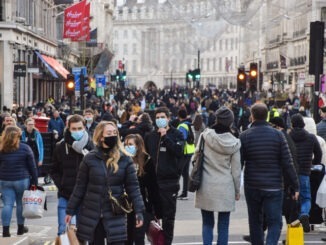
As reported by the BBC, there has been a sharp rise in long waits for cancer therapy in the past four years, BBC analysis shows
The number waiting more than the 62-day target time for therapy in the past year has topped 69,000 across England, Northern Ireland and Scotland – twice as many as the same period in 2017-18.
Waits are also getting worse in Wales, but data does not go that far back.
You can find out how services are doing where you live with our local search tool.
It shows you what proportion of patients treated for cancer had to wait longer than 62 days.
Macmillan has also raised concerns there could still be potentially thousands of missing cases.
The number of diagnoses since the start of the pandemic is more than 30,000 lower than would have been expected.
Disruption to services at the start of the pandemic and people not coming forward with symptoms because of fear of Covid or not wanting to burden the NHS has been blamed for this.
Recent data shows the numbers being referred in for cancer checks is now increasing and is at record levels.
But, as the analysis on waiting times for treatment shows, problems are still been seen in getting those patients treated quickly.
The BBC looked at the latest data for waits for treatment to start following an urgent referral from a GP, although the figures in Scotland also included those identified via screening or during a visit to A&E.
Treatments include surgery, chemotherapy and radiotherapy.
Investment in testing – a network of 90 community diagnostic centres has opened in England – is expected to speed up diagnosis.
However, cancer experts says the key bottleneck that needs addressing is the wait after that treatment with staffing shortages seen as a key problem.
The Royal College of Radiologists says there is a 17% shortfall in the UK in cancer doctors who oversee chemotherapy and radiotherapy.
“Staff is the key to fixing this,” Tom Roques, of the Royal College, said. “We desperately need a fully-funded workforce plan for the NHS that will recruit and retain the right numbers of staff that will be able to treat patients as quickly as we would all like.”
Labour shadow health secretary Wes Streeting, who has had kidney cancer but is now free of the disease after having one kidney removed, said: “It is terrifying that so many cancer patients are not being treated on time, when every day matters.
“Having been through treatment for kidney cancer this year, I know the importance of an early diagnosis and fast treatment.”
But Dame Cally Palmer, national cancer director for the NHS in England, said the “hard work” of staff was helping the system to catch up in terms of getting people in for checks.
But she said she was determined to ensure improvements were made in terms of diagnosis and treatment.
“We will not stop in our efforts to catch cancers earlier and save more lives.”


Be the first to comment